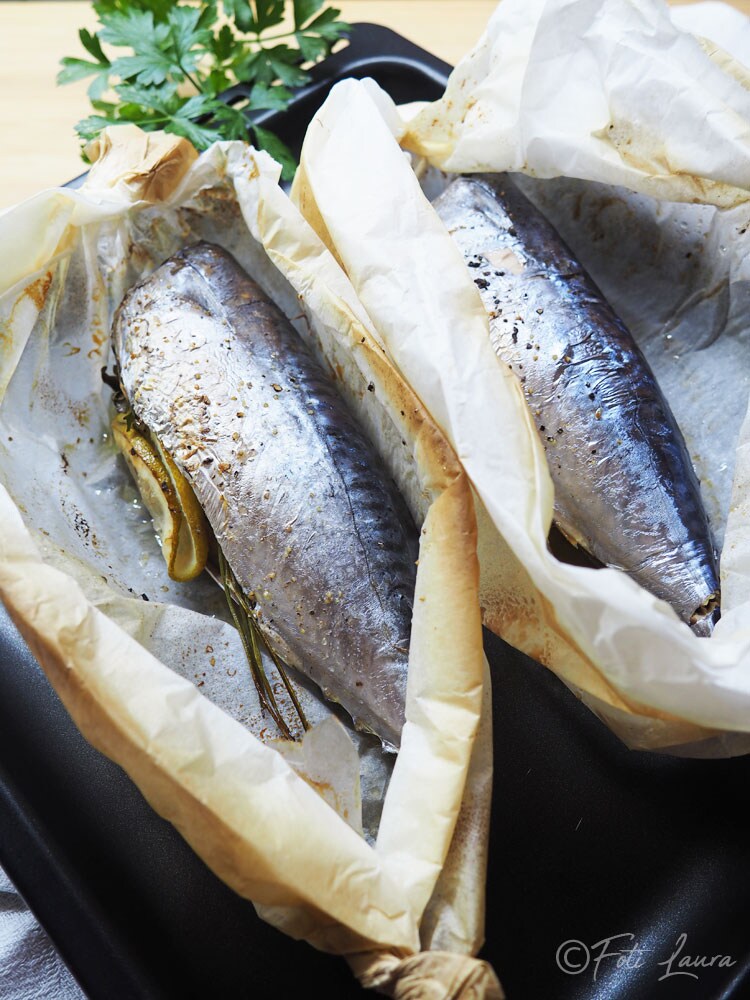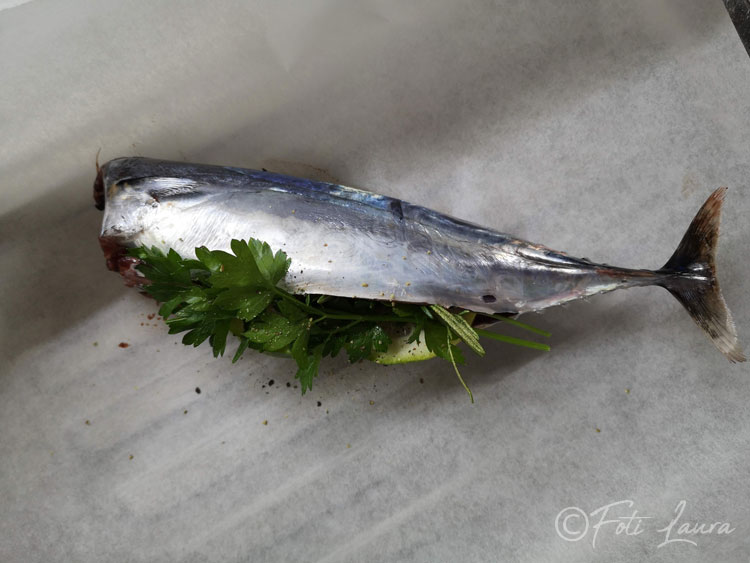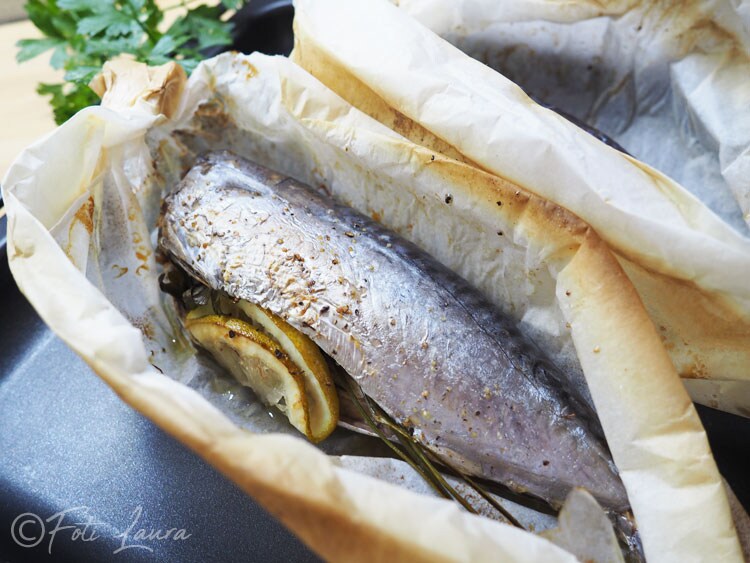Fresh baked tuna in foil is really easy to prepare and is the best way to obtain a tasty, light, and genuine main course.
The main problem with tuna (and all steaks like mahi-mahi) is that it tends to dry out, but with the foil technique, you will solve this problem: the steak remains juicy and tender inside because it cooks in its own aromas. For this preparation, it’s preferable to use steaks of at least 7 oz or small whole fish.
You can get creative with the addition of flavors (spices, lemon, herbs) and accompany it with a side dish. This method is foolproof and guarantees you a perfect foil-cooked tuna (or mahi-mahi) in about 30 minutes!

- Difficulty: Easy
- Cost: Moderate
- Preparation time: 10 Minutes
- Portions: 1 Person
- Cooking methods: Electric Oven
- Cuisine: Italian
- Seasonality: All Seasons, Fall
Ingredients for Baked Tuna in Foil
The quantity of ingredients is optional and depends on the size and number of fish to prepare; in this case, I will write what you need to flavor 1 tuna.
- 1 tuna (can be whole or a steak (about 7 oz))
- 1 slice lemon
- 1 sprig parsley
- 1 bunch rosemary
- 1 clove garlic
- to taste salt
- to taste pepper
- to taste olive oil
Tools
- 1 Parchment Paper
- 1 Baking Tray
- 1 Oven
Preparation of Baked Tuna in Foil
Take the tuna or tuna steak, clean it or have it cleaned at the fish market.
Lay it on a sheet of parchment paper large enough to wrap it easily.Add inside the fish (or on top of the steak) the lemon slice, parsley, garlic, rosemary, salt, pepper, and a generous drizzle of olive oil.

Close the parchment paper like a candy, sealing the edges well to trap the steam during cooking. In this way, the steam released during cooking will stay inside the foil, cooking it without drying it out.
Bake in a preheated oven at 392°F for about 30-35 minutes. The cooking time depends on the size of the fish, so check the cooking by gently opening the foil. The flesh should appear white and should flake easily. If necessary, close and continue cooking.
Once cooked, you can serve the tuna in foil on the plate with the parchment paper for a more scenic presentation, plus the liquid it releases will prevent it from drying out immediately.

Useful Tips for Baked Tuna in Foil
Skin and bone removal: Once on the plate, the first thing I do is remove the skin. Once cold, it becomes difficult to remove. Soon after, I remove the bones, the central one that comes off easily, the dorsal ones, and those underneath. VIDEO HOW TO REMOVE BONES
Serve with sauce: You can accompany the tuna with a light sauce, like mayonnaise or yogurt sauce, to add a touch of freshness.
Seasonal substitutes: You can enrich the tuna with other fresh herbs like thyme or marjoram. In summer, add fresh cherry tomatoes or grilled zucchini to the foil for a richer dish.
Why choose parchment paper over aluminum?
Read the product label to see if it is suitable for exposure to the oven with acidic foods such as lemon, tomato, etc. Aluminum as a metal can accumulate in the body even in small doses and cause discomfort. For more information, I refer you to this link from “Il fatto alimentare”.
Defrosting
If like me, you had this fish frozen, I recommend defrosting it slowly by placing it in the refrigerator several hours before, so it defrosts properly.
FAQ – Baked Tuna in Foil
Can I use another type of fish for this recipe?
Yes, this method is ideal for all steaks that tend to dry out. You can replace tuna with mahi-mahi, mackerel… Cooking times may vary slightly (for example, mahi-mahi might require 5 minutes less for the same thickness).
How can I tell when the tuna is cooked?
Tuna is cooked when the flesh becomes opaque and flakes easily with a fork. Also, check that the center of the fish is no longer translucent.
Can I prepare baked tuna in foil in advance?
Yes, you can prepare it in advance and keep it in the refrigerator until it’s time to bake it. Just put it in the oven directly from the cold, adding a few more minutes of cooking.

